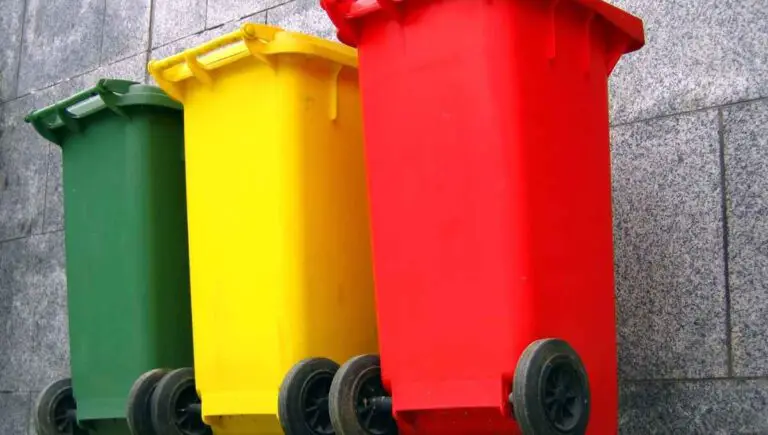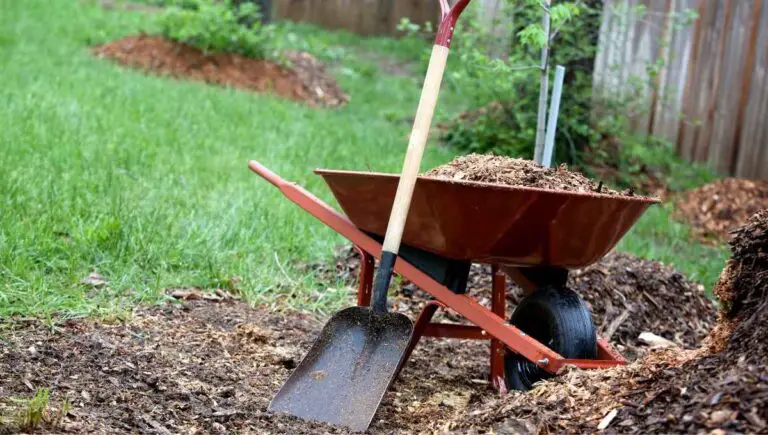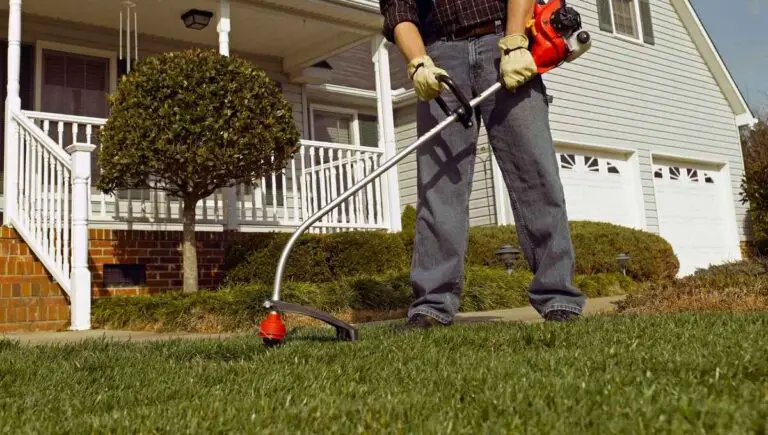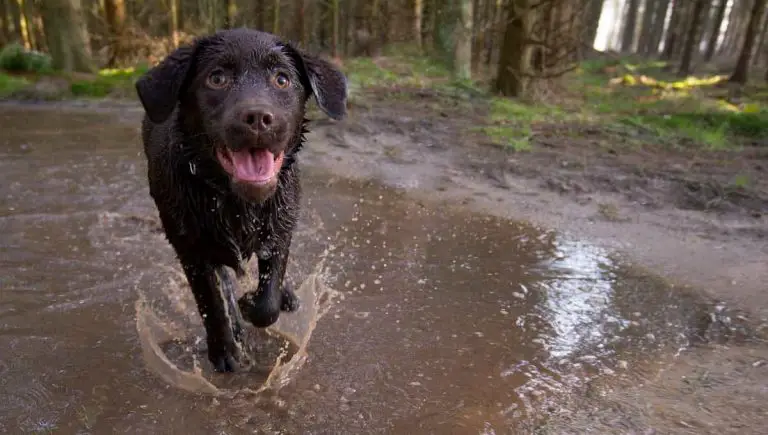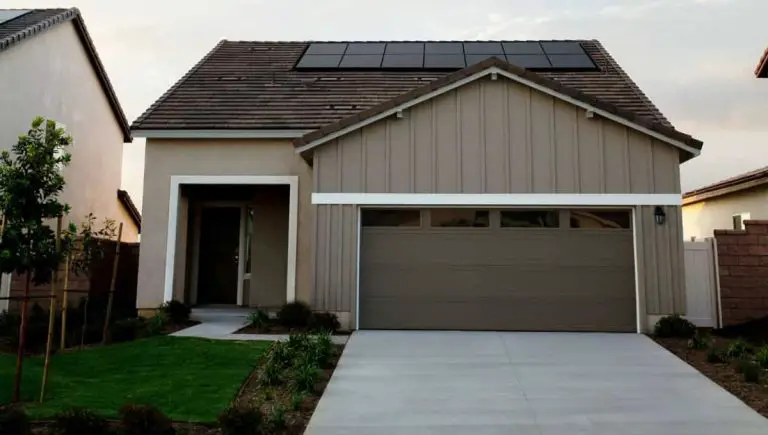Can a Weed Eater Overheat? (Things to Check)
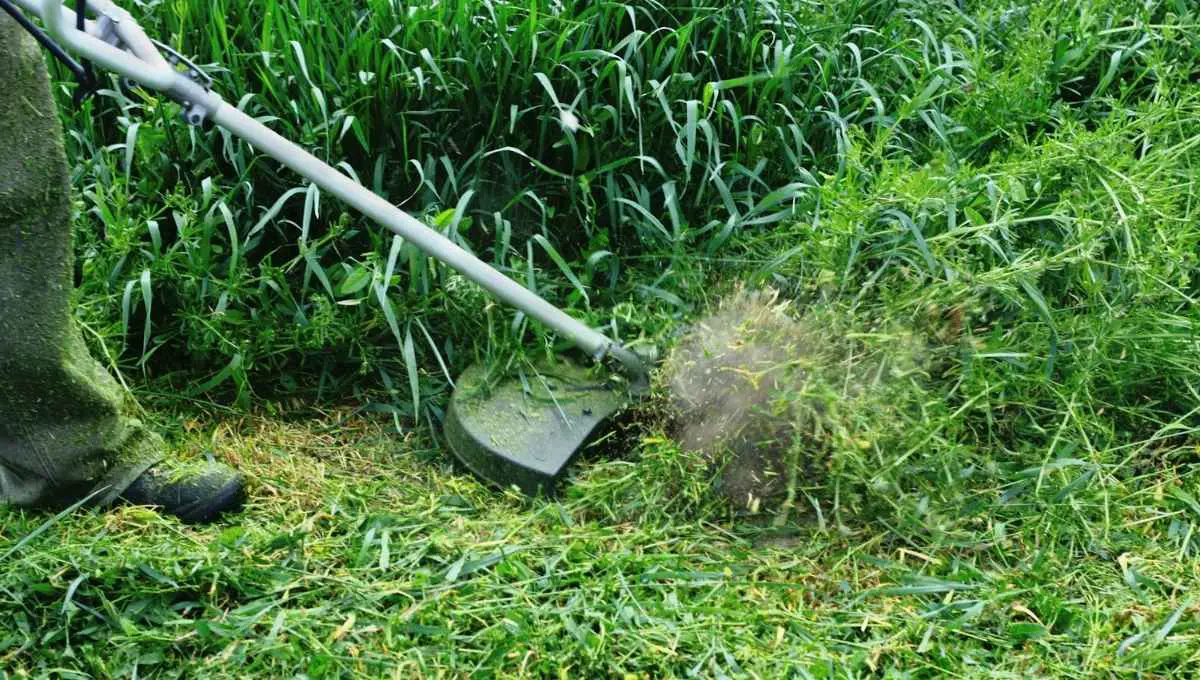
Weed eaters are very simple but effective tools used worldwide for lawn care. If you have a gas weed eater, you’ve probably wondered if it can overheat as a car does and what causes it to overheat. So, can a weed eater overheat?
A weed eater has a higher chance of overheating if it is consistently placed under stress. This stress is usually a result of a lack of cleaning and maintenance of your weed eater. Frequent maintenance can help combat this issue.
If you think your weed eater is overheating, read this article. We will equip you with what to do next time your weed eater gets hot. We also describe what could cause the overheating and how you can prevent it in the future.
This post contains affiliate links from Amazon and other stores. This means Yard Blogger may earn a commission if you make a purchase using any of our links. Please refer to our full affiliate disclosure policy for full details.
Here’s a Quick Pro Tip!
How you take care of your weed eater plays a big role in its overall health, but so does the quality of the actual machine. Therefore, you should invest in a good-quality weed eater to prevent these maintenance issues from occurring more frequently.
You should also consider trying our favorite weed eaters and accessories from Amazon next time you need to purchase a new weed eater:
Weed Eater Cover – To prevent your weed eater from getting dirty while in storage.
Black+Decker Electric Weed Eater – Perfect if you don’t want to deal with the maintenance of a gas weed eater.
Husqvarna 128LD Gas Weed Eater – Ideal for commercial use or on large properties.
Overheating Issues
Overheating is a common issue with almost any machine that uses gas. Weed eaters are no different. They also have issues with overheating. In this section, we’ll discuss common reasons for a weed eater overheating.
Why Is My Weed Eater Overheating?
There are many reasons why your weed eater could be overheating. The most common reason is that the cooling system is clogged. This system allows the motor to cool down, but if it’s blocked, the motor will overheat.
Another reason could be a dirty air passage. If you don’t clean and maintain your weed eater regularly, you can expect some overheating issues to occur over time. So don’t continue to use an overheating weed eater.
How Hot Can My Weed Eater Run?
Every manufacturer has different temperature parameters for their weed eaters. But, in most cases, you would be able to feel it as soon as your weed eater starts to overheat because it’s a lot warmer than what you’re used to.
The most important thing is immediately to switch off your weed eater when you notice an overheating problem. Overheating can cause permanent and irreparable damage to your weed eater.
Why Did My Weed Eater Stop Working?
In most cases, a weed eater stops working due to an improper cleaning or maintenance routine. For example, if your air passage has a build-up of dirt, or if your cooling fins have weeds clogged inside, it could break the weed eater.
Many other reasons could explain why your weed eater stopped working, most of which could be resolved with frequent cleaning. For example, if you have a 2-stroke gas engine, you might have used the wrong ratio to mix oil and gas.
You might also enjoy our post on What to Do if Your Weed Wacker String Keeps Breaking
Why Does My Weed Eater Only Run On Half Choke?
A weed eater only runs on half choke when the airflow is restricted. In most cases, this happens when dirt or debris is clogged in the carburettor. Additionally, the motor on a weed eater is not very big, so any small clog could be a problem.
Before scraping the weed eater in frustration, recheck your whole engine and focus on the air filters. If you notice clogged air filters or clumps of weed in the carburetor, it is relatively easy to clean it out and restart your weed eater.
What Happens if a Two-Stroke Weed Eater Overheats?
When a two-stroke weed eater overheats, it will only run on half choke. The most common reasons for overheating two-stroke weed eaters are insufficient air intake, poor lubrication, or a clogged cooling system.
Sometimes you can fix the problem yourself, but other times you would need a professional, like a mechanic, to look at your weed eater. The first step would be to identify what is causing your two-stroke weed eater to overheat and assess whether it is something that you can solve.
Hot Weed Eater
So what do you do when your weed eater gets hot? Well, in this section, we’ll discuss how to fix an overheated weed eater and what you should do to limit the damage to your machine. So let’s dive into it!
Weed Eater Stalls When Hot?
The weed eater overheats when heat is not emitted properly, which puts extra strain on the motor and eventually stalls. If your weed eater starts to stall, you need to turn it off and check your engine.
Don’t continue using your weed eater when it shows signs of overheating. This can do more harm than good. You will probably permanently damage your weed eater and need to replace the whole machine.
How to Fix an Overheated Weed Eater?
The most important thing is to switch off your weed eater, do not try to continue weed-eating. Instead, take your weed eater to the garage or shed and start checking everything for signs of dirt or clogs.
What you should check first when your weed eater overheats:
- Check the cooling fins for clumps of weeds or grass. Clear the clumps and clean the cooling system with water and soap. Make sure to rinse out the soap when finished.
- Your carburettor needs to be adjusted. If you use a gas weed eater, your carburettor may need to be adjusted at some point to prevent too much fuel from being fed to the engine.
- If you have a 2-stroke weed eater, use the right ratio for the gas and oil mixture. This will be indicated in your user manual.
- You also need to make sure that the air filter of a gas weed eater is clean. This is where cold air flows into the engine. It is crucial they’re not blocked.
- Battery-operated weed eaters are not designed to work on large and tough terrain. In addition, they are quite weak and will easily overheat from overworking them.
- Using an electric weed eater, you should check the voltage supply. Using a voltage supply that is too high will cause your weed eater to overheat.
How Do I Keep a Two-Stroke Weed Eater Cool?
Maintenance and cleaning are the two most important tools to keep your two-stroke weed eater cool. If you do not regularly clean your weed eater, dirt and debris will build up around the engine.
It’s recommended to give your weed eater a thorough cleaning at least once a season. Once a month would also be a good idea. In addition, clean out your air filters and cooling system often, especially after a weed-infested lawn.
My Weed Eater Dies When It Gets Hot?
A weed eater that dies when it gets hot indicates an issue with something inside. Most times, the air filter or cooling system needs to get cleaned out. However, it could be something else if you have a battery or electric weed eater.
Battery-powered weed eaters are not as powerful as other fuel sources. Therefore, they tend to overheat simply from overworking. In addition, electric weed eaters need to have the right voltage supply. If the supply is too high, it will also cause the engine to overheat.
You might also enjoy our post on Do Weed Eaters Need Oil?
Smoking Weed Eaters
A weed eater is not the machine you want to see smoking on a Saturday morning. So what does it indicate if your weed eater starts to smoke? Is it serious? Let’s discuss the details.
Why Is My Weed Eater Smoking?
A weed eater smoking is a sign of something wrong. It could be an incorrect mixture of oil and gas, a dirty carburetor, poor combustion, or leaking gas/oil. If you notice smoke coming from your weed eater, you should immediately stop and turn it off.
The most common reason for weed eater smoke is poor combustion. This happens when the fuel-air mixture is off balance. In most cases, the weed-eating person forgot to turn off the choke after the engine started. It has happened to the best of us, just turn off the engine and wait a few hours for it to cool down.
In the meantime, double-check with the user manual that you used the right oil-to-gas ratio. If it seems right, then check your muffler. This is where the exhaust fumes travel, and after a while, they can start to build up layers of dirt.
Is It Normal for a Weed Eater to Smoke?
Your weed eater should not be smoking. If it starts to smoke, it indicates that something is wrong. Therefore, you should immediately kill the engine and inspect the machine in your garage or shed.
The first thing you should do when you notice smoke is to turn off the choke. The choke causes an imbalanced fuel-air mixture which leads to poor combustion. You should also let the engine cool down before looking at all the filters.
How Much Smoke Is Normal for a Weed Eater?
No amount of smoke is normal for a weed eater. It should not be smoking at all. If you notice smoke coming from your weed eater, you should stop and turn it off. Smoke coming from your weed eater is caused by some problems.
The most common problem that causes smoke from a weed eater is when the choke is not turned off after ignition. This results in poor combustion because the fuel does not burn completely.
White Smoke From My Weed Eater?
Usually, white smoke indicates insufficient lubrication in your engine. You probably put too little oil in your gas or mixed the gas and oil incorrectly. Immediately stop and turn off the engine when you see white smoke to prevent further damage.
Let the engine cool down completely, and then change the fuel. Follow the user manual to ensure that you use the right oil-to-gas ratio. Also, ensure you’re not using more than 10% ethanol gas.
You might also enjoy our post on If a Weed Eater Can Cut Your Finger Off
My Battery-Powered Weed Eater Is Smoking?
A battery-powered weed eater smoking is a cause for alarm. It may indicate a connection problem between the motor and the battery. Unfortunately, this is not something that you can repair on your own.
The battery may be sending too much electric power to the motor. This can cause the material around the motor to burn. You should try not to breathe in this smoke and get your weed eater at a professional as soon as possible.
Engines
If you’re using a gas-powered weed eater, you probably know by now that it needs maintenance every so often. In this section, we will look at some common problems you might have with your weed eater.
How Do I Know if My Weed Eater’s Engine Is Blown?
The most obvious sign of a blown engine is the engine failing to start. If your engine had overheated quite often, it could also indicate something was wrong. If you continued to use it under stressed conditions, you might have blown your engine.
Check your weed eater’s air filter, spark plugs, cooling system, and fuel-to-oil ratio. If everything seems right, you would need to take it to a professional to have them check for any permanent engine damage.
I Think I Blew My Weed Eaters Engine?
There are a few ways to check for irreparable damage to your weed eater engine. The first thing is to check if there still is enough fuel in the weed eater and if you mixed the right ratio of oil to gas.
Next, you should check your air filter and cooling system for clogs or clumps of stuck weeds. The last thing is to check the spark plug and make sure it is clean. Finally, if everything seems good, but your engine fails to start, you should contact a professional mechanic.
Why Does My Weed Eater Lose Power?
A weed eater loses power when its airflow is restricted. This happens when the fuel-air mixture is not balanced. This causes poor combustion and can also cause your weed eater to lose power.
Check your spark plug for any dirt, which often causes an engine to lose power. You should also check the air filter of the weed eater. A dirty air filter causes your engine to overheat and eventually lose power.
How Long Can You Run a Weed Eater?
Professionals who use weed eaters as part of a lawn care business state that they can run their weed eaters up to six hours daily. In between, they refill the fuel tank and check for any clogged grass or weeds.
It depends on how you clean and maintain your weed eater. Generally, it is safe to use it for one hour at a time and then take a break to clean out grass clumps from the strings and check the air filters.
How Long Do Weed Eaters Typically Last?
Depending on how often you use and clean it, you can expect a weed eater to last up to five years. This is only an average estimate, though. If you take proper care of the machine, it could last longer.
‘Proper care’ refers to cleaning your weed eater at least once a season, always checking that you use the right ratio to mix gas and oil, and always keeping your air filters clean. It will probably not last five years if you do not take care of your weed eater.
You might also enjoy our post on What Kills Weeds Permanently?
Related Questions
How Long Do Spark Plugs Last in a Weed Eater?
Spark plugs last an average of 100 hours in a weed eater, although this is subjective to how often you clean it and take care of your whole machine. After 100 hours, you should replace the spark plug.
When spark plugs get dirty, they decrease the performance of the whole engine. So it is important to clean and check on them regularly. If you don’t do this, you’ll probably need to replace your spark plug sooner than 100 hours.
How Long Will a 20V Weed Eater Last?
A 20V weed eater should last about an hour on the low setting. While on the high setting, it will probably last around 40 minutes. These weed eaters are ideal for smaller yards.
If you can’t complete your yard in a single charge, upgrading to a bigger, more powerful gas weed eater might be a good idea. In the long run, it will save you a lot of time if you cut out charging your weed eater twice.
Are Gas or Battery Weed Eaters Better?
A gas weed eater would be better for a large property or commercial use. Although for a small property, a battery weed eater would be better. Even though both do the same job, gas weed eaters are generally more powerful.
Battery weed eaters have no engine to maintain and very low noise levels while not having a lot of power. On the other hand, gas weed eaters are very powerful and deliver all-day performance while being loud and needing regular maintenance.
Ultimately, the best weed eater would be the one that fits your circumstances and lawn care needs.
Final Thoughts
Usually, if a weed eater starts to overheat and you catch it in time, you can fix whatever problem you find. We hope you found this article informative and that you know what to do next time your weed eater gets hot.




